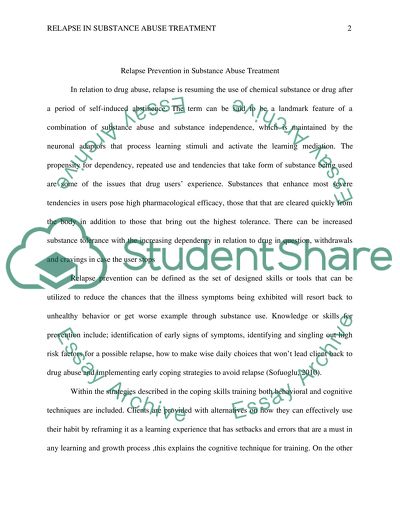Cite this document
(“Relapse Prevention Research Paper Example | Topics and Well Written Essays - 1250 words”, n.d.)
Relapse Prevention Research Paper Example | Topics and Well Written Essays - 1250 words. Retrieved from https://studentshare.org/health-sciences-medicine/1492819-relapse-prevention
Relapse Prevention Research Paper Example | Topics and Well Written Essays - 1250 words. Retrieved from https://studentshare.org/health-sciences-medicine/1492819-relapse-prevention
(Relapse Prevention Research Paper Example | Topics and Well Written Essays - 1250 Words)
Relapse Prevention Research Paper Example | Topics and Well Written Essays - 1250 Words. https://studentshare.org/health-sciences-medicine/1492819-relapse-prevention.
Relapse Prevention Research Paper Example | Topics and Well Written Essays - 1250 Words. https://studentshare.org/health-sciences-medicine/1492819-relapse-prevention.
“Relapse Prevention Research Paper Example | Topics and Well Written Essays - 1250 Words”, n.d. https://studentshare.org/health-sciences-medicine/1492819-relapse-prevention.


